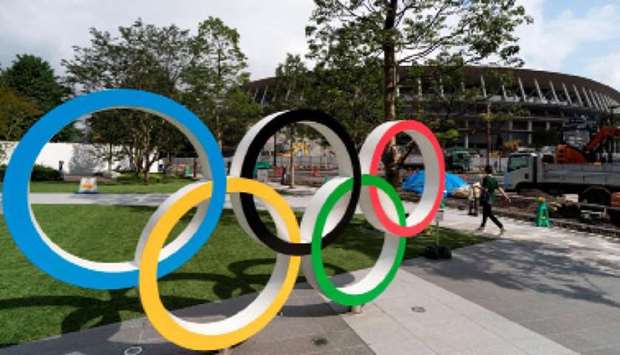For some doping offenders the postponement of the Tokyo Olympics to next year could be an unexpected ticket to the Games, provided they qualify. The bans of a number of athletes who couldn’t have competed this year expire in time for the rescheduled edition July 23-August 8, 2021. Many are not happy about this development caused by the coronavirus pandemic, but there appears to be no legal way to challenge it.
“This leads to distortion of competition and I hope it is unique. This year with the virus has had a lasting impact on equal opportunities and competition,” former German athletics chief Clemens Prokop said.
German anti-doping activist Fritz Soergel would prefer bans to be frozen when no competition is possible such as currently, saying that “valid bans should relate to competitions and training times” because “time has stopped.”
However, similar efforts by the International Olympic Committee (IOC) have been thwarted by the Court of Arbitration for Sport (CAS).
In the so-called Osaka rule, the IOC wanted athletes who had served doping bans of six months or more to be banned from the following Olympics as well. But that ruling was successfully challenged by the US athletics body on behalf of their 400m runner LaShawn Merritt.
CAS said the rule could be introduced if it was part of the World Anti-Doping Code (and not the IOC Charter) but WADA instead extended bans from two years to four years because of the Olympic cycle.
“WADA, as the global anti-doping regulatory body, has clarified that under the current rules, doping bans are chronological and not event-specific,” the IOC said in a questions and answers section on the postponement of the Tokyo Games.
“The IOC has tried on several occasions to introduce rules that would exclude athletes convicted of doping from the subsequent Olympic Games. This has never been allowed by the Court of Arbitration for Sport (CAS).”
Dozens of athletes from the sport of athletics could compete next year in Tokyo while they would have been denied this year. Athletics Integrity Unit head Brett Clothier has been quoted as calling it “an unfortunate situation” but a legally correct one. These athletes include Turkey’s middle distance runner Gamze Bulut, whose ban expires on May 20 which would have been too late to qualify for Japan this year — but gives her plenty of time to make it in 2021.
Bulut was promoted to Olympic 1,500m gold from 2012 when compatriot Asli Cakir Alptekin was disqualified for doping, only to be stripped of it later when she was banned.
The same could apply in several other sports including swimming where veteran South African relay gold medallist Roland Schoeman and two-time relay gold medallist Conor Dwyer of the US have bans expiring in time as well. Dwyer however retired last year after being banned for 20 months but could possibly reconsider.
German swim federation performance director Thomas Kurschilgen said the return of banned athletes for the postponed Games was “a bitter pill which clean athletes must always swallow when former doping criminals start again.”
World Athletics chief Sebastian Coe said that “this is something we will need to look at” but WADA president Witold Banka said recently that anti-doping organisations (ADOs) can’t “cherry-pick” when athletes should serve bans.
“While an athlete cannot choose when he or she would like to be ineligible, an ADO cannot either,” Banka said. “This is entirely consistent with principles of natural justice and other areas of the law as it relates to sports or even criminal activity. When an offender has done the time, the sentence is considered to be served.”

..
